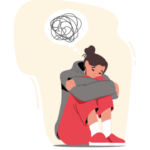
Human fertility is on the decline and ...the frequency of reproductive impairment is increasing.
Recent articles in The Journal of the American Medical Association (JAMA) have established a link between infertility and increased human exposure to a widely used pesticide – glyphosate, sold as Roundup®. Roundup has been implicated in children’s health issues and the development of certain cancers for quite a few years. But now we have the best data yet to connect it with difficulties getting pregnant.
According to epidemiologist and pediatrician Phillip Landrigan’s notes in JAMA, “multiple lines of evidence suggest that human fertility is on the decline and that the frequency of reproductive impairment is increasing.” He’s referring to reduced sperm counts, increased congenital disabilities, and rising rates of testicular cancer that are “almost certainly” linked to chemical exposure. Landrigan points an accusing finger at elected officials and policymakers who write off pesticide exposure as merely an environmental issue. “In fact,” he says, “these potent chemicals can have powerful effects on human health that need to be intelligently confronted.”
What’s needed? Better research and regulation, say the scientists. Researchers in the Journal of Epidemiology and Community Health (JECH) declare that “current safety standards are outdated.” And that’s in no small way related to the fact that standards are based on evidence provided by glyphosate manufacturer Monsanto, which has manipulated the data for nearly a generation. Public concern over pesticide use has risen, but there hasn’t been a corresponding response from the government. Researchers urge politicians to stand up to the pesticide lobby to strengthen pre-market testing, post-marketing surveillance, and warning labels. We have a tracking system in place for pharmaceutical drugs, so why not pesticides that also act upon the health and functions of our bodies? Such legislation should require the documentation of human exposures and the development of better hazard assessments to track vulnerable populations such as agricultural and landscape workers.
There’s a to-do list for the rest of us, too – whether we’re trying to have children or are raising them.
- Eat more organic food to avoid or reduce pesticide use and exposure.
- Insist that governments impose or enhance common-sense regulations on the pesticide industry.
- Stop buying chemicals to remove weeds from your driveway. Spraying vinegar and dish soap will kill weeds, making the process safer for the planet.














